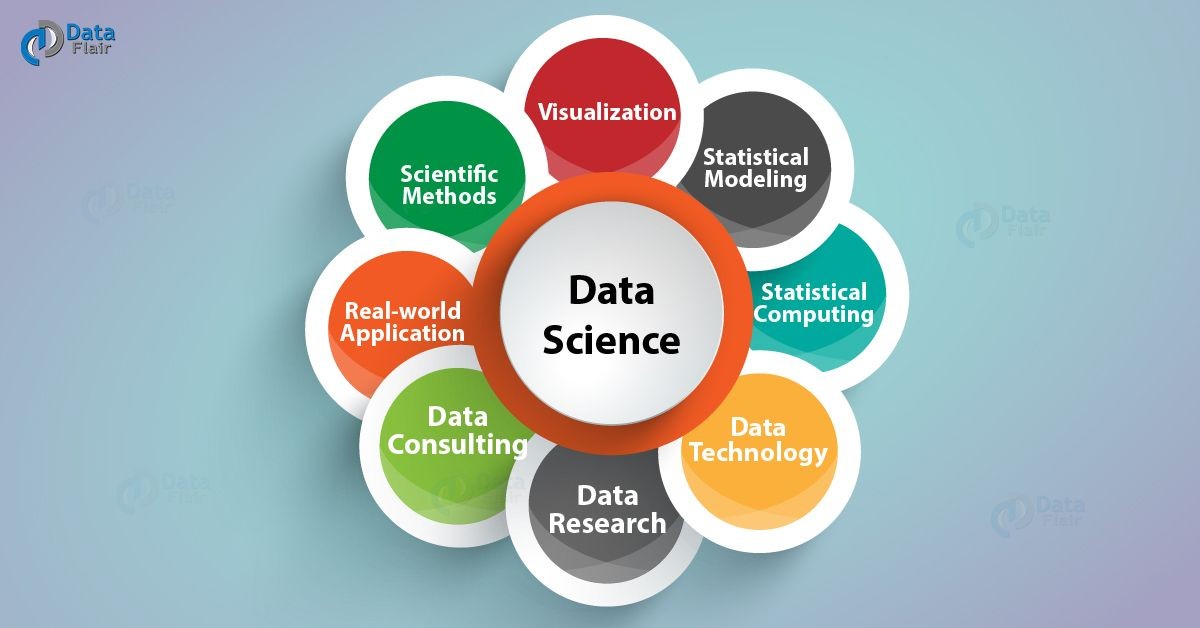Key Highlights
- In today’s data-driven world, skilled data scientists are crucial for unlocking valuable insights and driving business growth.
- This blog post explores 10 essential skills for data scientists to achieve business success in 2025 and beyond.
- From advanced statistical analysis and machine learning techniques to business acumen and ethical considerations, the required skill set is diverse and constantly evolving.
- By understanding the importance of these skills, organizations can build strong data science teams that can effectively leverage data for strategic decision-making and gaining a competitive edge.
- Whether you are a data scientist looking to enhance your skill set or a business seeking to empower your data team, this blog provides valuable guidance for success.
Introduction
In today’s fast-changing digital world, data is very important for the success of a business. Data scientists help businesses by finding useful information from large amounts of data. This helps companies make better decisions and grow. In fact, a recent survey found that companies that leverage data-driven insights are 23% more likely to acquire customers and 19% more likely to be profitable than their peers. This blog post will look at the key data science skills needed for business success in 2025. By recognizing and developing these skills, businesses can use their data better and gain a competitive edge in the market. With the global data science market projected to grow at a CAGR of 26.9% from 2021 to 2028, reaching $178 billion by 2028, the importance of skilled data scientists is more significant than ever.

Essential Data Scientist Skills for Business Success in 2025
The job of a data scientist is getting more important. Many organizations see that they need to understand the huge amounts of data they generate every day. Data scientists have many technical skills. They can analyze data, build models, and share insights. Because of this, the need for skilled professionals is growing. It’s essential for both new and experienced data scientists to keep improving their skills.
This article talks about ten key skills data scientists need for success in business. By learning these skills, data scientists can help their organizations grow, be more efficient, and succeed overall. In fact, the global big data market is forecasted to grow to $273.4 billion by 2026, highlighting the increasing demand for data science expertise.
1. Advanced Statistical Analysis
At the core of data science is a good understanding of statistical analysis. This skill helps data scientists collect, investigate, and understand data. They find hidden patterns, trends, and links. It means using statistical methods and models to look at data sets and gain useful insights.
Data scientists must know key statistical ideas like hypothesis testing, regression analysis, and probability distributions. By using these ideas, they can create predictive models, predict future events, and share important insights with others. According to a recent study, 82% of data scientists consider statistical analysis a critical skill for their role, highlighting its importance in deriving meaningful insights from data. It is very important for data scientists to be good at advanced statistical analysis. This helps ensure their findings are correct and trustworthy. This, in turn, leads to better decision-making.
No matter if they are looking at customer behavior, predicting sales trends, or spotting risks, a strong background in statistical analysis is key. It helps data scientists handle the challenges of data and provide valuable information.
2. Machine Learning Techniques
Machine learning is very important in data science. It allows data scientists to build algorithms that learn from data. These algorithms can make smart predictions or decisions without needing to be programmed for every situation. Data scientists need to understand a variety of machine learning methods, like supervised learning, unsupervised learning, and reinforcement learning.
Supervised learning uses labeled data to predict results. Unsupervised learning finds patterns in data that has no labels. Reinforcement learning trains agents to make choices to get the highest reward. By learning these methods, data scientists can create strong models for tasks like image recognition, natural language processing, fraud detection, and more. According to industry reports, the machine learning market is expected to grow from $21.17 billion in 2022 to $209.91 billion by 2029, at a CAGR of 38.8%, highlighting the increasing reliance on machine learning solutions across various sectors.
Being able to apply and refine machine learning algorithms is crucial. This helps in getting useful insights from data, creating smart systems, improving processes, tailoring customer experiences, and sparking innovation in many areas.
3. Data Wrangling and Preparation
In data analytics, data does not usually come ready to use. Data scientists spend a lot of time cleaning and preparing raw data so it can be used for analysis. This process is called data wrangling. It involves fixing missing values, handling different formats, and solving data quality problems.
Data scientists need to be skilled in using tools and methods to change raw data into a useful format. They often deal with messy data, missing values, and make sure the data is consistent. Data scientists spend approximately 60% of their time on data wrangling and preparation, highlighting the critical nature of this task in the data analysis process. The quality of insights from data analytics depends a lot on how well data wrangling and preparation are done.
By learning data manipulation techniques and using the right tools, data scientists can handle messy data. This helps ensure their analysis is based on correct and dependable information. This, in turn, leads to better decision-making and valuable business results.

4. Big Data Technologies Expertise
The rise of big data has changed how businesses work. It has created opportunities and challenges for data scientists. Today, they must know big data tools like Hadoop, Spark, and NoSQL databases. These tools help them manage, process, and analyze large datasets that older methods can’t handle. According to market research, the global big data technology market is expected to reach $116.07 billion by 2027, growing at a CAGR of 14.0% from 2020 to 2027, underscoring the increasing reliance on big data solutions.
The work of a data engineer often overlaps with a data scientist, especially when working with big data. Knowing the basics of data engineering—like data warehousing, data pipelines, and data streaming—helps data scientists handle large datasets better. It also lets them work well with data engineers to keep the data accurate, easy to access, and processed efficiently.
Being skilled in big data tools and working with data engineers is important for data scientists. This skill set helps them turn large amounts of data into helpful insights. These insights aid smart decision-making and support businesses in reaching their goals.
5. Data Visualization and Communication
Data visualization is very important in data science. It helps data scientists share complex data in a clear and interesting way. This means using graphs, charts, dashboards, and interactive visuals to show patterns, trends, and unusual results.
Good visuals help people understand the important data findings and make smart decisions. Data scientists need to know how to use tools like Tableau, Power BI, or Python libraries such as Matplotlib and Seaborn. These tools help them create strong and helpful visuals. According to a recent survey, 74% of organizations believe data visualization is critical for conveying insights to stakeholders, emphasizing its role in effective communication. But just being good at making pretty pictures is not enough.
Data scientists should focus on:
- Knowing their audience and what information they need.
- Picking the right type of visualization for the data.
- Clearly sharing the main points from their analysis.
By sharing insights well, data scientists connect technical details to business choices. This promotes a data-driven culture in their organizations.

6. Programming Proficiency in Python or R
Data analysis and modeling often need programming skills to work with data, use algorithms, and create applications. Python and R are popular programming languages for data scientists. They offer many libraries and frameworks made just for data analysis, statistical modeling, and machine learning.
Python is well-known for its flexibility. It has many useful libraries like Pandas, NumPy, and Scikit-learn. These help with data manipulation, statistical analysis, and making machine learning models. According to a recent survey, 87% of data scientists use Python as their primary programming language, reflecting its widespread adoption in the field. R, on the other hand, is great for statistical computing. It offers a full setup for exploring data, making visuals, and statistical modeling with tools like dplyr, ggplot2, and caret.
Knowing at least one of these languages is very important for data scientists. This skill lets them do complex data tasks, apply algorithms, and create applications based on data. Choosing between Python and R will depend on the project needs, current setup, and your own likes.
7. Business Acumen and Understanding of Sector-Specific Needs
While technical skills are important, data scientists should also know how businesses work. They need to connect their data work with real business results. It’s essential to understand the industry, its competition, and its goals. This way, data science can fit well with business plans.
Data scientists must understand key performance indicators (KPIs), business problems, and what the organization needs from the industry. A recent survey indicates that 67% of business leaders believe that aligning data science initiatives with business objectives significantly improves project outcomes, highlighting the importance of sector-specific knowledge. This knowledge allows them to turn data insights into helpful advice that solves business issues and helps with decision-making.
By linking data with business needs, data scientists can become reliable advisers. They offer insights that help grow revenue, make operations better, and improve customer satisfaction. They do this by using their data skills to meet the specific goals of the business.
8. Advanced Computational Problem Solving
Data scientists often face tough computer problems. They need to have strong problem-solving skills. It’s not just about knowing programming languages. They also break big problems into smaller ones. They make smart algorithms and use their computer resources well. A recent industry analysis found that 70% of data scientists believe that advanced problem-solving skills are crucial for effectively tackling complex computational challenges.
In the fast-changing tech world, new challenges and chances pop up all the time. Data scientists must keep up with new things, like cloud computing and distributed computing. By adapting quickly to new technologies and techniques, they can handle large data tasks, improve complex models, and find new solutions for businesses.
What makes great data scientists stand out is their ability to think deeply, analyze complex systems, and create good solutions. This skill helps them give important insights and support tech progress in their companies.

9. Experience with AI and Neural Networks
Artificial intelligence (AI) is changing many industries. Neural networks, a type of AI, are very popular. They can learn complex patterns from large amounts of data. Data scientists need to have hands-on experience with different neural network types. This includes convolutional neural networks (CNNs) for images and recurrent neural networks (RNNs) for sequences of data. According to recent industry reports, the AI market is projected to grow from $86.9 billion in 2022 to $407 billion by 2027, at a CAGR of 36.2%, highlighting the increasing importance of AI expertise.
Also, data scientists should keep up with new trends in AI. This includes generative adversarial networks (GANs) and reinforcement learning. These trends can greatly change areas like image generation, drug development, and robotics. Knowing about AI concepts and tools helps them create new solutions, automate tasks, and explore what is possible with data.
By always improving their knowledge and skills in AI, data scientists can gain a competitive edge. They can build top-tier applications, solve difficult problems, and find valuable insights. These insights are often missed by traditional methods. This allows them to create innovative solutions that help progress in many fields.
10. Ethical Considerations and Data Privacy Laws Knowledge
Data scientists deal with sensitive information. Because of this, they must follow ethical practices. They have to obey data privacy laws too. It’s important for them to understand the ethical effects of their work. This includes knowing about bias in algorithms, keeping data secure, and using AI responsibly.
Data scientists should know about key data privacy rules like the General Data Protection Regulation (GDPR) and the California Consumer Privacy Act (CCPA). A recent survey found that 85% of consumers are more loyal to companies with strong data privacy practices, emphasizing the importance of adhering to these laws. This knowledge helps them handle data in a way that complies with laws and protects individual privacy. They need to understand data governance and put strong data security measures in place. Advocating for responsible AI development is also crucial for ethical data science.
When data scientists mix ethical practices with legal rules in their work, they help build trust. They create a positive impact in their organizations. By making sure data is used carefully, fairly, and openly, they promote ethical data practices. This helps protect individual rights and keeps the organization’s reputation strong.
Leveraging Data Science for Strategic Advantage
Data science is more than just looking at data. It focuses on turning data into something valuable for a business. When organizations use data science well, they can get ahead of their competition. They can set better prices, create personalized experiences for customers, work more efficiently, and reduce risks by making decisions based on data in different areas. According to a recent survey, companies that effectively leverage data science are 5 times more likely to make faster decisions than their peers, highlighting the strategic advantage gained through data-driven insights.
To be successful in data science, it’s important for data scientists, business analysts, and leaders to collaborate. Companies that build a strong data culture, support their data teams, and use insights from data have a better chance to succeed in today’s world where there is so much information available.
How Data Scientists Drive Business Strategy
Data scientists are very important for building business strategies. They change raw data into useful information that fits the goals of the organization. They do this not just by looking at past data but also by using analytical methods that predict and suggest future actions.
Predictive analytics looks at statistics and uses machine learning to guess what might happen in the future. This helps businesses see trends, manage their stock better, and improve customer experiences. On the other hand, prescriptive analytics goes a step further. It offers data-backed solutions by looking at different options and problems to find the best results. Research shows that organizations using predictive analytics see a 20% increase in operational efficiency, demonstrating the tangible benefits of data science in strategic planning.
Data scientists also share their findings clearly with decision-makers. They help them make smart choices. They explain difficult technical ideas in easy-to-understand words while pointing out possible risks and chances. They suggest data-based strategies to help reach business goals.

Building the Ideal Data Science Team
Creating a strong data science team is important. It helps get the most value from data. A good data science team has people with many different skills. This includes data scientists skilled in statistical modeling, machine learning, and big data technologies. It also includes data engineers who make sure data is good quality, easy to access, and processed smoothly. Organizations with well-structured data science teams are 2.5 times more likely to report significant business benefits from their data initiatives, highlighting the importance of team composition.
But, skills are not the only important thing. Good data science teams encourage open talks, teamwork, and a common understanding of business goals. Talking regularly with team members, stakeholders, and decision-makers keeps everyone on the same page. This helps the team stay in line with what the business needs, deal with problems, and celebrate wins.
Key Roles and How They Complement Each Other
A successful data team is made up of several key analytics roles. Each role brings its own skills to help the team work better together. Data scientists create models, analyze data, and develop algorithms. Data analysts find insights in data, spot trends, and share their results in a clear way.
Data engineers build and maintain the systems for collecting, storing, and processing data. Their job is to make sure data is easy to access, correct, and safe. This helps data scientists focus on their main tasks. A recent survey found that 78% of companies with clear role definitions in their data teams experience improved project outcomes, indicating the importance of role clarity. The teamwork between these roles is important for a smooth data process.
Good communication and collaboration among team members are very important for reaching a shared goal. Each role supports the others by providing different strengths. This helps the data team solve problems, discover valuable insights, and push for data-driven decision-making in the organization.
Recruiting and Retaining Top Data Talent
Attracting and keeping the best data talent is very important for any company that wants to use data science well. To do this, companies should offer good pay, chances for learning, and a workspace that inspires new ideas and growth.
Companies should also take part in conferences, hackathons, and online groups to find and connect with skilled data workers. Research indicates that companies that invest in employee development are 4.5 times more likely to retain top talent, emphasizing the value of continuous learning opportunities. After hiring, it’s important to provide ongoing training, chances to attend workshops, and access to the latest tools to help them update their skills and encourage lifelong learning.
Creating a nice work atmosphere is just as important. This can include giving flexible work hours, encouraging teamwork and sharing of ideas, and recognizing great work. To keep the best data talent, it’s not enough to just offer good pay; companies must create a place where data professionals feel important, motivated, and able to make a real difference.
Conclusion
In conclusion, it is important to master some essential data scientist skills for business success in 2025. These skills include advanced statistical analysis and knowledge of big data technologies. Organizations that effectively utilize data science skills are 3 times more likely to achieve their business objectives, highlighting the strategic importance of these competencies. Having a good mix of these skills is key. Using them in smart ways can create big improvements. This will help shape business strategies and provide a competitive edge.
To build a strong data science team, first understand the key roles. Then, focus on finding and keeping top talent. Research shows that companies with robust data science teams experience a 30% increase in operational efficiency, emphasizing the value of investing in skilled personnel. By focusing on these skills and methods, businesses can use the power of data science for long-term success.
References
- https://medium.com/business
- https://github.com/minimaxir/hacker-news-undocumented
- https://dilbert.com/strip/1998-02-14
- https://wordpress.com/blog/2019/08/28/hiring-women-engineers/
- https://speechify.com/medium
- https://www.integrate.io/blog/how-to-use-data-to-create-personalized-marketing-campaigns-increase-and-roi/
- https://www.gouconnect.com/
- https://www.udacity.com/course/deep-learning-nanodegree-foundation–nd101

